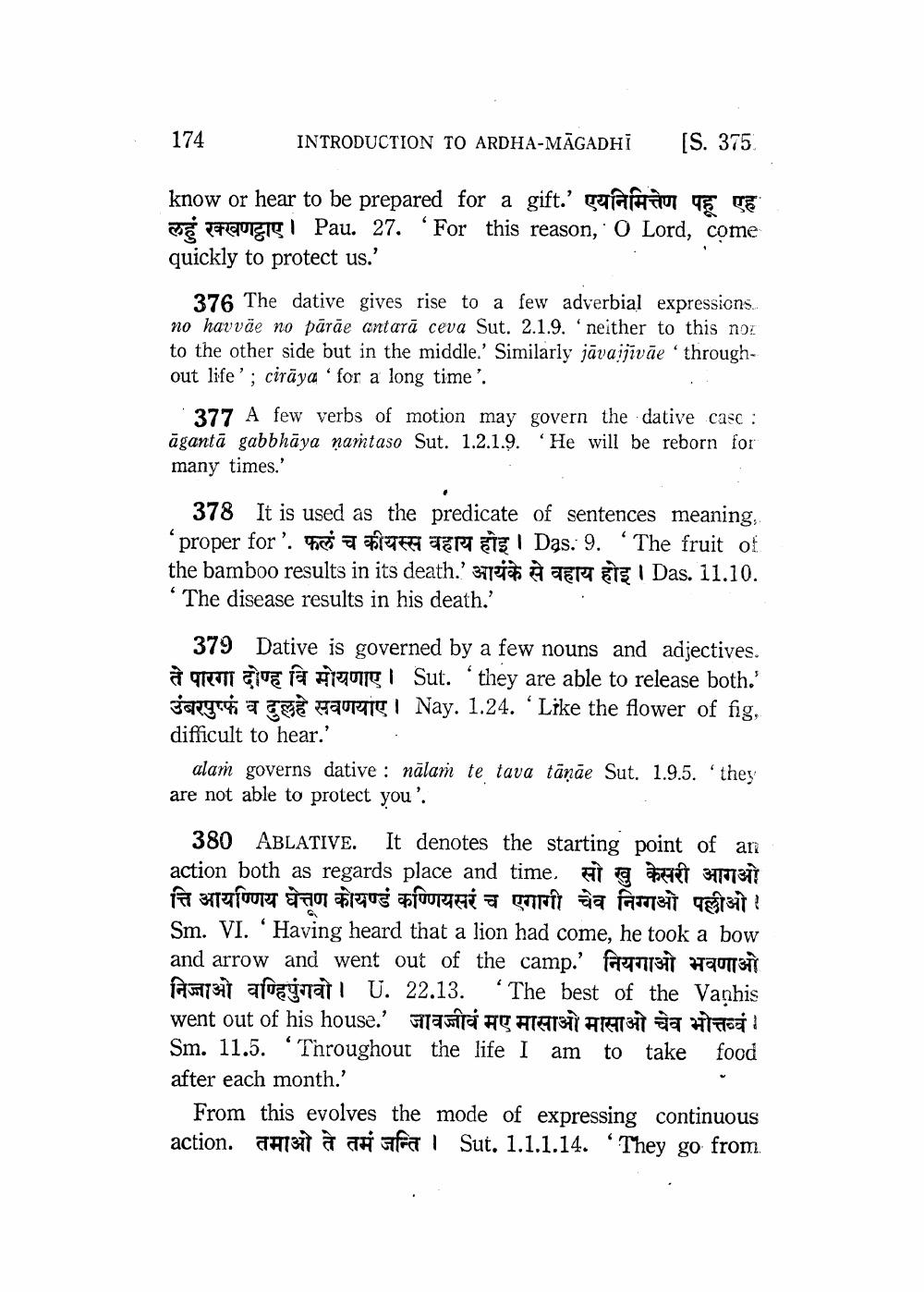________________
174
INTRODUCTION TO ARDHA-MĀGADHI
(S. 375
know or hear to be prepared for a gift.' एयनिमित्तेण पह एह
Dauerg | Pau. 27. 'For this reason, O Lord, come quickly to protect us.'
376 The dative gives rise to a few adverbial expressions. no havväe no pārāe antarā ceva Sut. 2.1.9. 'neither to this non to the other side but in the middle.' Similarly jāvaisīvāe throughout life'; cirāya 'for a long time'.
377 A few verbs of motion may govern the dative case : āgantā gabbhāya namtaso Sut. 1.2.1.9. 'He will be reborn for many times.'
378 It is used as the predicate of sentences meaning, proper for'. 4 a TFT TERT EIS I Das. 9. 'The fruit of the bamboo results in its death.' 3771 À TERT ETS I Das. 11.10. The disease results in his death.'
379 Dative is governed by a few nouns and adjectives. à quo agê 100151 Sut. “they are able to release both.' gaya n sarili Nay. 1.24. ‘Like the flower of fig, difficult to hear.
alam governs dative : nālam te tava tänäe Sut. 1.9.5. they are not able to protect you'.
380 ABLATIVE. It denotes the starting point of an action both as regards place and time. सो खु केसरी आगओ त्ति आयण्णिय घेत्तण कोयण्डं कण्णियसरं च एगागी चेव निग्गओ पल्लीओ। Sm. VI. “Having heard that a lion had come, he took a bow and arrow and went out of the camp.' fattorit maurisit fastisit arogati U. 22.13. “The best of the Vanhis went out of his house.' Flair AC ATAT Ateit a HITTEET Sm. 11.5. Throughout the life I am to take food after each month.'
From this evolves the mode of expressing continuous action. aprit à anafaa i Sut. 1.1.1.14. They go from




